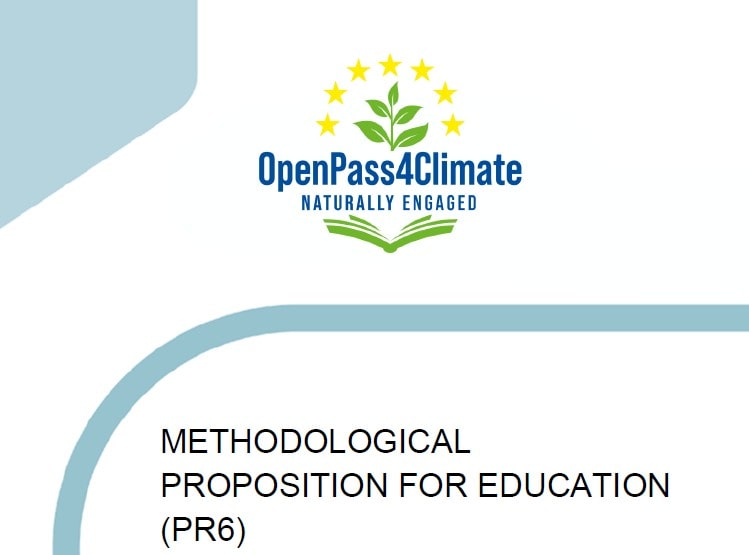PR6 – Methodology for Implementing the European Framework of OpenPass4Climate within Educational Contexts
Building on earlier reports (PR1–PR5), PR6 provides a methodological framework for implementing the OpenPass4Climate platform and passport in educational contexts prior to higher education, with a particular focus on secondary schools.
The report begins by situating climate education within the broader European Green Deal, Agenda 2030, and EU funding mechanisms, before reviewing national initiatives in the five partner countries—Italy, Belgium, France, Portugal, and Spain. It then presents the OpenPass4Climate platform and passport as digital tools designed to certify climate-related learning through open badges, promoting lifelong learning and the validation of both formal and non-formal education.
Drawing on national focus groups, PR6 explores how the platform can be effectively implemented in schools. Stakeholders praised its intuitive design, clear alignment with sustainability education, and potential to support both student engagement and teacher professional development. At the same time, they highlighted the importance of structured teacher training, institutional support, and ensuring compliance with data protection standards, particularly for underage learners.
As both a pedagogical tool and recognition system, PR6 demonstrates how OpenPass4Climate can enrich school curricula, bridge formal and informal learning, and empower young learners to take meaningful action on sustainability.



